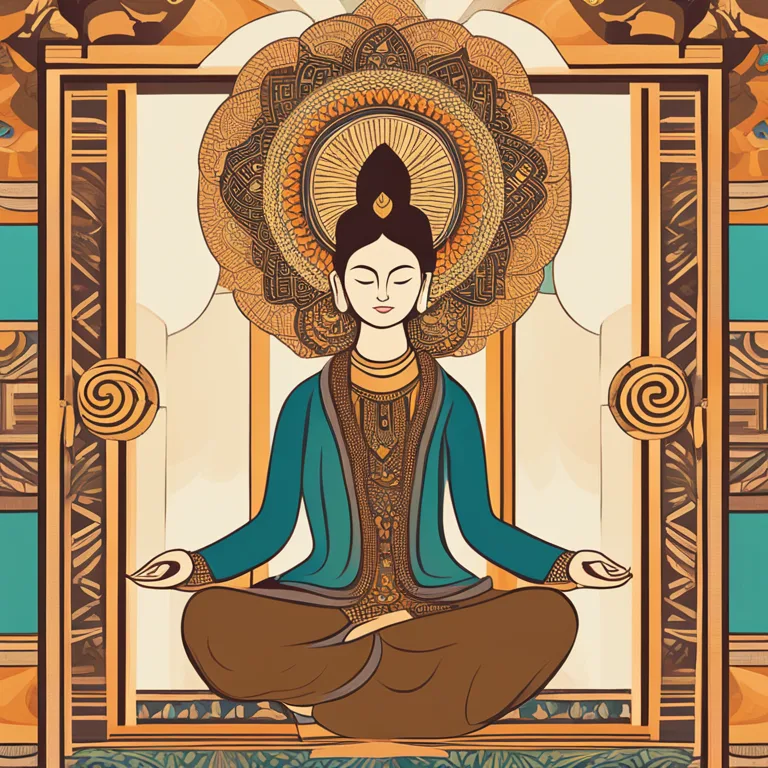
Meditation Practices for Overthinkers
Soothe persistent thoughts and find mental clarity with targeted meditation techniques designed to ease the overthinking mind.
article by Hina Kurosawa
Grasping the Phenomenon of Overthinking
In the bustling world of 2024, we’re constantly inundated with information, leading many of us to fall prey to overthinking. This relentless mental chatter can obstruct our wellbeing and complicate our day-to-day decisions. Understanding this cognitive whirlwind is the first step toward regaining serenity. Mindfulness and meditation have emerged as tools not only for tranquility but for fostering a more harmonious mental state, hence their growing popularity in our hyperconnected society.

Mindful Breathing: The Anchor of Presence
Mindful breathing stands as the cornerstone of meditation practices, revered for its simplicity and efficacy. By focusing on the rhythm of your breath, you allow the flood of thoughts to recede, anchoring yourself in the present moment. This technique is especially potent for overthinkers, as it gently interrupts the cycle of rumination that erodes mental peace. Beginners and seasoned practitioners alike can benefit from mindful breathing as they journey towards a quieter mind.

Progressive Relaxation: Step-by-Step Calm
Progressive Muscle Relaxation (PMR) is a technique designed to release physical tension, fostering a state of relaxation that permeates both body and mind. The process involves tensing and then relaxing different muscle groups, which can be particularly valuable for those who carry stress in their body as a result of overthinking. As tensions melt away, so does the grip of persistent thoughts, allowing serenity to seep in.

Mantra Meditation: Harnessing the Power of Repetition
The use of mantras—repetitive sounds, words, or phrases—can be an effective meditation practice for overthinkers. The repetition serves as a focal point, quieting the cacophony of anxious thoughts and providing a form of acoustic solace. As the mind sinks into the rhythmic mantra, it’s steered away from the tendency to overanalyze and toward a more meditative state of consciousness.

Body Scan: Attentiveness to Physical Sensations
Body Scan meditation is a practice that involves paying detailed attention to the sensations within different parts of the body, often starting from the toes and moving upwards. This method encourages practitioners to explore and observe without judgement, which can be incredibly grounding for someone whose thoughts tend to spiral out of control. It's about reconnecting with the often-neglected bodily experiences, thus redirecting attention from the mind's chatter to its tangible presence.
Zen Walking: Meditating in Motion
While traditional meditation is often associated with stillness, Zen Walking offers a dynamic alternative. This form of meditation emphasizes slow, deliberate walking with mindful attention to movement and surroundings. Overthinkers may find Zen Walking particularly beneficial, as it channels the mind's overflow of energy into physical action, fostering a state of moving meditation that can be as calming as any seated practice.
Visualization: Crafting a Serene Mindscape
Visualization invites you to construct a peaceful scene within your mind, engaging your creative faculties to build a sanctuary from the relentless thoughts. This practice can be especially appealing to overthinkers because it provides a mental escapade. Transporting yourself to a serene environment, imagined in vivid detail, can open a space for relaxation and a respite from the usual torrent of thoughts.
Published: 1/8/2024
Modified: 1/8/2024
More predictions
Come back here soon to learn more about yourself and your future


Mastering Japa Meditation Practices
Discover the serene art of Japa Meditation and elevate your spiritual journey through chanting and mindfulness.


Meditation Techniques: A Handbook
Discover the breadth of meditation methods to enhance your wellness journey.


Jain Meditation Techniques for Inner Peace
Discover the serenity and spiritual depth of Jain meditation practices in a comprehensive article tailored for modern seekers.